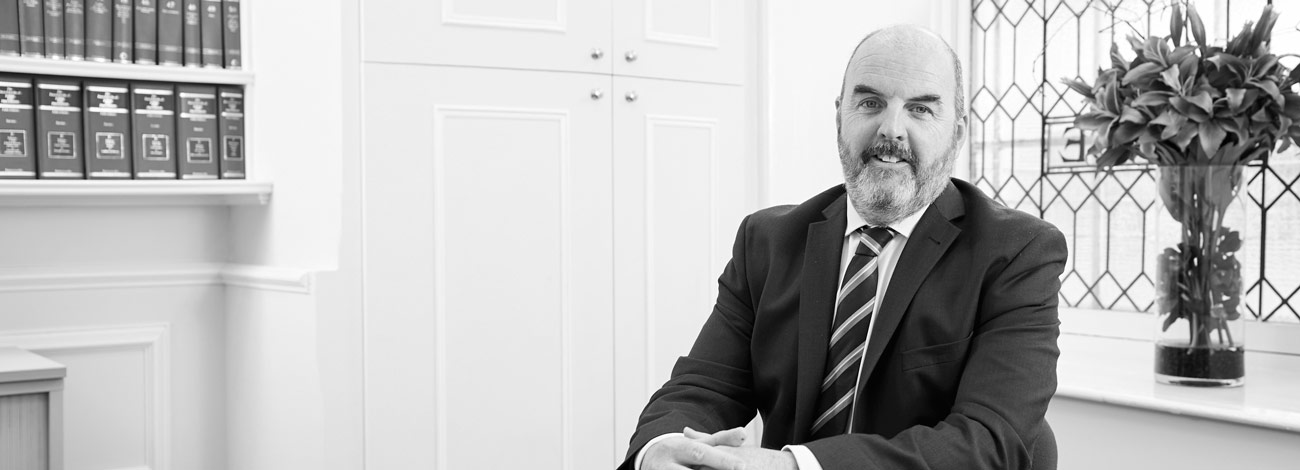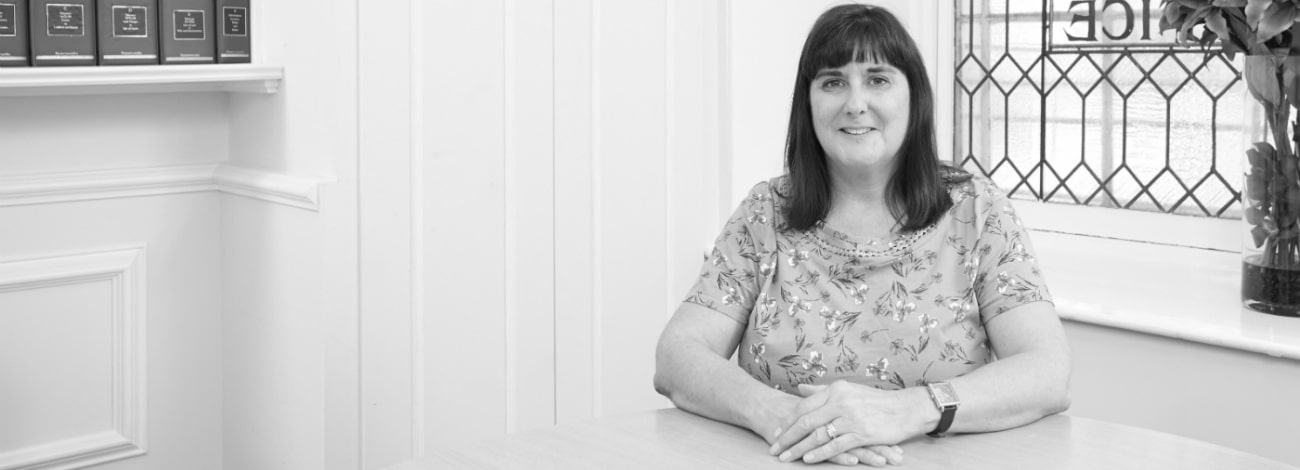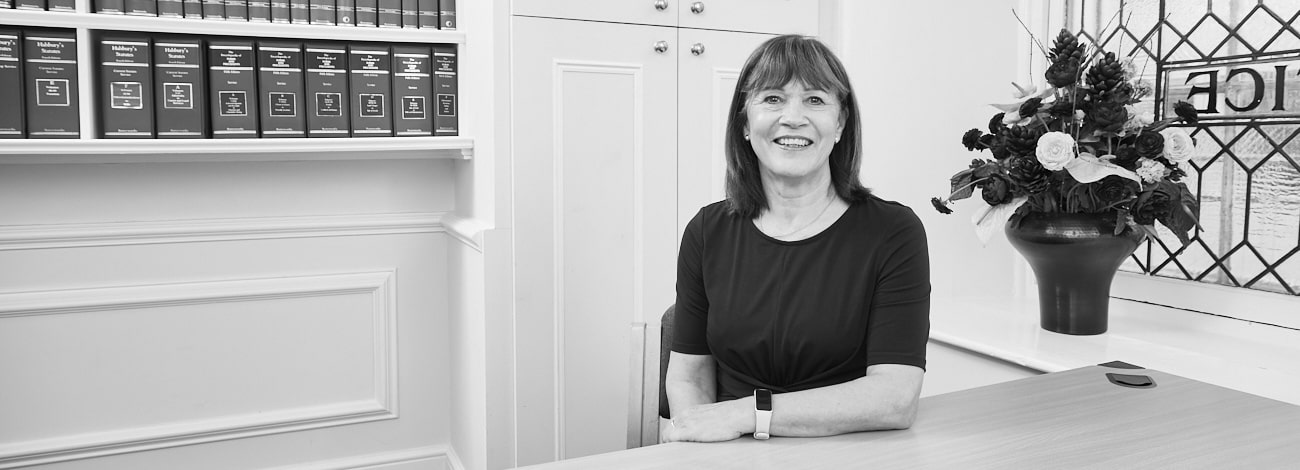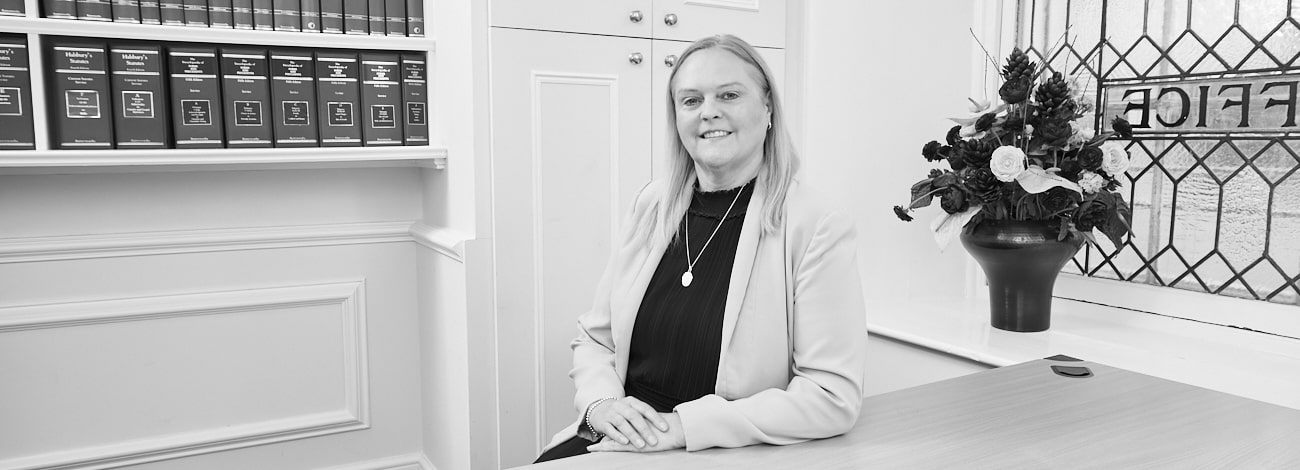Buying a property is one of the most exciting milestones in our lives, and it is likely that any purchases are made with partners, friends, or with assistance from a parent.
In all situations, it is important that clear agreements are made in terms of who has invested into the property and what will happen should a relationship dissolve or the property was to be sold. This has been more prevalent in the ever increasing housing market, particularly in the South, where more than ever first time buyers are being priced out of the market if they choose to buy a property by themselves.
There are several ways that this protection can be achieved, all of which we have the experience to advise you on as to which would be most suitable for your situation.
Declaration of Trust
A Declaration of Trust can be used to define each person’s contribution to the purchase price, the additional costs of purchase and any future contributions to the property. This is particularly important where you and the co-owner have contributed to the purchase price in unequal shares, or where one party has paid the deposit.
The Declaration of Trust is a legally binding contract and sets out in clear terms your joint intentions, your share in property and the entitlement of each party should the property be sold. It can also set out whether one party has the right to purchase the other party’s share in property and who will pay the mortgage.
It is sometimes possible, when purchasing a property to simply include in the Transfer document the percentage shares in which you wish to hold the property. However, this will not set out the background behind the transaction, the initial sums you are contributing or the mortgage details.
It is a common myth that if you are living with your partner you will be classed as their “common law husband or wife” and therefore the assets will be divided equally between you in the event of a breakdown of a relationship. There is no such thing as common law spouses and the reality is that should you split up you have no automatic right to an equal division of the property. If the property is in your partner’s name you may be asked to leave the property and if you contributed any monies to the property it is possible these may not be returned.
Although not being the most romantic proposition, or a discussion that you would wish to have with your partner, friend, parent, or child, it is nevertheless an important conversation to have when purchasing a property. By dealing with these matters at the outset it can avoid problems further down the line, caused by anxiety and uncertainty as to whether your particular share, deposit, or ongoing contribution to the property has been protected.
If a relationship does fail matters can quickly turn sour and this is the worst time to attempt to sort out finances. By preparing and signing a Declaration of Trust these matters can be dealt with when your property is purchased.
Declarations of Trust have also been used in the past to provide protection where, for example, your parents have loaned money to you to assist in the purchase of your first home but they are not registered as an owner of the property. The Declaration of Trust would safeguard your parent’s contribution and provide that their contribution be returned to them when the property is sold. However, this may not always be the best route either logistically or in respect of tax planning as it depends on the particular circumstances in play.
Before loaning monies to someone to purchase a home, we would always advise you discuss the situation with us as we will be able to help you to decide how to protect the loan. We will discuss your requirements with you and advise you on potential tax complications that may arise as a result of your instructions. If it is decided that a Declaration of Trust is the best course of action, we will then prepare a Declaration of Trust based on our discussion and arrange a note of the existence of the Trust to be lodged with the Land Registry, if required.
It is important when discussing a Declaration of Trust to consider the effect of yours and your co-owner’s Will, or the rules of intestacy. In order for a Declaration of Trust to be effective the property must be held beneficially as tenants in common, as opposed to joint tenants. As joint tenants, the property automatically passes to the survivor in the event of one of the co-owners passing away. With tenants in common, the co-owner’s share would pass in accordance with the terms of their Will, or the intestacy rules.
It is important to consider, when making a Declaration of Trust, the effect of a co-owner’s death and whether or not as the co-owner you will be able to remain in the property. It is therefore imperative that Wills and their effect are considered and our experienced team will be able to discuss this with you in your initial meeting.
Couples & Common Accidents
One of the most distressing types of estate which we occasionally are met with is one which arises from a common accident, for example, where both parents have been killed in a common car accident or on a sporting activity.
If a Will has been executed then issues of succession and the method of administration of the estate will be clear from the Will and the respective parties’ families catered for under the terms of the Will.
In the case of jointly held property, the intestacy provisions or the directions under a Will are relevant only in relation to the person who is last to survive as jointly held property devolves directly to the surviving owner. In the absence of medical evidence as to who was the last to survive, it will be deemed that the younger owner died last. This can have devastating effects in the context of unmarried co–owners in particular and careful thought is needed on how property should be held when in joint names. A tenancy in common might be more appropriate and we can advise you as to the most appropriate option.
In the case of property passing under the terms of the intestacy provisions provided by the Administration of Justice Act 1925, the law recognises that injustices can arise in the case of spouses if (in the absence of medical evidence to the contrary) it is deemed that the younger spouse was the survivor. Accordingly, in the case of any death of an intestate spouse on or after the 1st January 1996, if the intestate dies in circumstances of a common accident, a surviving spouse will only take on the intestacy provisions if he or she survives the intestate by 28 days.
In practical terms this means that if both spouses die together without a Will, any children will share equally the assets from the older spouse’s estate. The younger intestate spouse will not inherit the older spouse’s property, but if the younger spouse has children they will take what assets that spouse does have. If there are no children, the assets will go to parents, and in the absence of any parents, to brothers and sisters.
In effect this means that in the circumstances of “common accidents” the intestate spouse will be deemed to have no surviving spouse and the provisions of intestacy will be applied accordingly.
Wills are not a tool for old age. Any young person owning or sharing ownership of property, particularly if they have life cover, must have a Will to ensure that their assets pass to the right people. Without a Will, your assets would be distributed according to the rules of Intestacy.
Joint Ownership – assets other than land
Joint bank and building society accounts are often recommended to family members, part of the reason being the assumption that in the event of the death of a holder his or her rights can be transferred without having to wait for the grant of Probate. However, this may not necessarily be the case.
Accounts from which money can be withdrawn on the signature of either of the joint account holders give the survivor the legal title to the account but not necessarily the right to retain the funds for their own benefit.
Beneficial ownership may depend on the way in which the account has been funded and on the intention of the parties. If you as one joint account holder have provided all the funds in the account, the law presumes that in the event of your death, the survivor would hold the money on trust for your estate.
If, on the other hand, there is evidence that in opening the joint account you intended to make a gift of the funds, then this assumption could be overturned. However, if you have both contributed, the situation can be more complicated and may give rise to delays while the Revenue authorities decide how much belongs to you and how much to your survivor.
The way in which you report interest receipts in your tax returns will be a helpful indication of your intentions. However, if significant sums are involved, it might be sensible for you to draw up a Declaration of Trust to put matters beyond doubt.
To find out more about how we can advise you on any of the matters discussed, contact us on 01329 222075 or email privateclientenquiry@warnergoodman.co.uk.





















